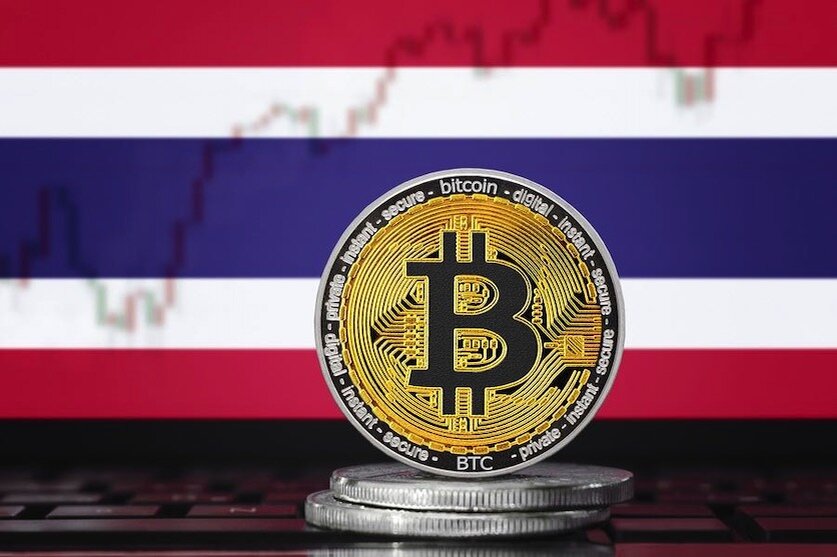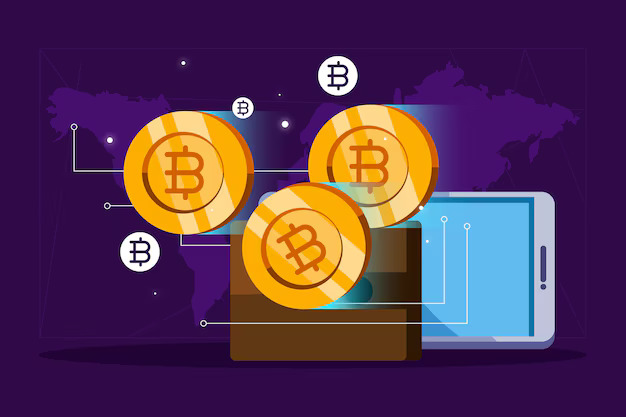Regulatory Landscape of Cryptocurrency in Singapore and Thailand

The rise of digital assets has prompted various nations to develop frameworks that address the nuances of this innovative financial landscape. As the popularity of virtual currencies grows, the necessity for clear guidelines has become apparent, aiming to ensure both security and transparency for users and investors alike. This exploration of two prominent Southeast Asian countries highlights the differing approaches taken to nurture this burgeoning sector.
While each nation embodies its distinct cultural and economic ethos, they are both navigating the challenges posed by this evolving field. The interplay between innovation and oversight is crucial to foster a healthy market atmosphere. Officials strive to strike a balance that promotes growth while safeguarding participants against potential pitfalls and fraud.
Through examining their policies and frameworks, we can gain insights into how these countries are positioning themselves within the global digital finance ecosystem. The strategies implemented reflect their respective priorities and readiness to embrace the future of financial transactions in an increasingly digital world.

Overview of Cryptocurrency in Singapore
The landscape of digital currencies in this island nation has evolved significantly in recent years, capturing the attention of investors, entrepreneurs, and regulators alike. A unique blend of innovation and structured oversight has positioned this place as a leading hub for virtual assets in the region. Stakeholders in the finance and technology sectors are increasingly exploring the potential impact and opportunities presented by these digital forms of value.
Market Growth and Adoption
Recent trends indicate a rapid increase in the adoption of virtual currencies among individuals and businesses. Various commercial enterprises have embraced these assets for transactions, and a growing number of startups are emerging to provide related services. This dynamic environment fosters an ecosystem where technology can seamlessly integrate with finance, creating new avenues for growth and development.
Role of Regulatory Authorities
Authorities in this nation have taken proactive measures to create a balanced framework that encourages innovation while addressing potential risks. By implementing clear guidelines, they aim to support the evolution of this space without stifling its progress. Collaboration between governmental bodies and industry participants is instrumental in shaping a safe and efficient marketplace for participants and consumers alike.

Thailand’s Approach to Digital Assets
The landscape for digital currencies in this Southeast Asian nation reflects a proactive attitude towards innovation while ensuring consumer protection and market integrity. Authorities are focused on fostering an environment that balances the desire for technological advancement with the necessity of mitigating associated risks.
- Establishment of a regulatory framework to oversee the issuance and trading of digital tokens.
- Implementation of Know Your Customer (KYC) practices to enhance transparency in transactions.
- Collaboration with local and international entities to cultivate a robust ecosystem for digital investments.
Moreover, the central bank has taken significant steps to explore the potential of digital innovation, including pilot programs that test new technologies under controlled environments. This initiative allows for the assessment of impacts on the financial system while promoting the adoption of secure practices.
- Development of educational programs for investors to understand the complexities and risks involved.
- Encouragement of innovation through sandbox environments that allow startups to experiment with new business models.
- Engagement with stakeholders to create policies that reflect the evolving nature of digital assets.
This comprehensive strategy positions the nation as a notable player in the regional and global landscape of digital finance, embodying a commitment to both advancement and security.
Key Regulatory Bodies in Singapore
The landscape governing digital assets in this Southeast Asian hub is shaped by a sophisticated framework of institutions. These entities play a vital role in providing oversight, ensuring compliance, and fostering innovation within the financial ecosystem.
Monetary Authority of Singapore (MAS)
The primary authority responsible for monetary policy, the MAS also oversees activities related to digital assets. Their approach combines a commitment to fostering growth while emphasizing consumer protection and market integrity. This balance is essential in building trust among participants in the financial domain.
Information Technology Security Agency (IMDA)
The IMDA focuses on advancing the nation’s digital landscape by promoting safe practices in technology usage. By facilitating cybersecurity measures, they contribute to creating a secure environment for all stakeholders involved in digital financial activities.
In conclusion, the collaborative efforts of these key organizations ensure a stable and innovative climate for digital asset initiatives, benefiting both businesses and consumers in the region.
Thailand’s Government and Crypto Policies
The approach taken by the authorities in the nation towards digital assets reflects a blend of cautious support and stringent control. As the landscape for alternative currencies continues to evolve globally, the focus remains on fostering innovation while ensuring financial security and consumer protection. The regulatory framework established by officials aims to attract investment and promote technological advancement while addressing associated risks.

Framework and Licensing
In their effort to create a structured environment for digital assets, the government has introduced a licensing system for businesses operating in this domain. This includes stringent requirements for transparency, anti-money laundering measures, and consumer safeguards. The goal is to cultivate a safe ecosystem that encourages growth while minimizing potential misuse and financial crimes.
Taxation and Economic Impact
Tax implications play a significant role in the national approach, with specific guidelines established for profits arising from digital asset trading. The economic potential of this market has not gone unnoticed, with initiatives aimed at harnessing its benefits for overall national growth. By creating a balanced environment that incentivizes participation without compromising stability, the government seeks to position itself as a leader in the evolving financial landscape.
Comparative Analysis of Regulatory Frameworks
This section explores the differences and similarities in the frameworks governing digital assets across two Southeast Asian nations. Each country has approached the oversight of virtual currencies with distinct strategies, shaped by their economic, cultural, and legal landscapes. A comprehensive comparison highlights how these varying approaches influence the growth, security, and acceptance of digital financial systems.
The first nation has implemented a robust framework that emphasizes licensing and compliance requirements for service providers. These measures aim to ensure consumer protection and promote transparency within the market. In contrast, the second nation has adopted a more flexible approach, encouraging innovation while still addressing potential risks through guidelines that foster a harmonious relationship between entrepreneurs and governing bodies.
An important aspect of both frameworks is the emphasis on anti-money laundering and counter-terrorism financing measures. While one country relies more heavily on stringent enforcement, the other seeks to balance regulation with the need to nurture a burgeoning industry. The effectiveness of these methods in mitigating risks while supporting growth remains a point of discussion among stakeholders.
Moreover, public engagement and awareness initiatives play a crucial role in shaping the landscape in each jurisdiction. The proactive communications strategies employed by the first country contrast with the community-driven outreach efforts in the other, demonstrating varying levels of government involvement in promoting understanding of digital financial products.
In conclusion, the comparative analysis reveals that while both countries aim to create a secure environment for the digital asset ecosystem, their philosophies and methodologies differ significantly. These differences underscore the challenges and opportunities faced by businesses and consumers alike in navigating the evolving landscape of electronic transactions.
Future Trends in Southeast Asian Regulations
The upcoming landscape in Southeast Asia indicates a growing focus on frameworks that govern digital assets and innovative financial technologies. As nations in the region strive to foster a secure, transparent, and efficient environment for emerging industries, the need for cohesive guidelines becomes increasingly critical. In this dynamic context, we can anticipate notable shifts aimed at enhancing consumer protection, encouraging innovation, and stimulating economic growth.
Collaboration among countries is expected to strengthen, leading to more harmonized approaches that can better address cross-border challenges. Such moves might involve sharing best practices and aligning policies to create a unified market that attracts both domestic and international players.
Furthermore, the rise of decentralized finance and other groundbreaking technologies will compel authorities to adapt existing frameworks or introduce new ones. As stakeholders become more educated and engaged, regulatory bodies may find themselves in a position where they must balance innovation with safety, ensuring that opportunities do not overshadow potential risks.

Additionally, there will likely be an emphasis on continuous dialogue between policymakers and the industry. This ongoing conversation can pave the way for adaptive policies that resonate with the fast-evolving landscape, allowing for flexibility and responsiveness to rapid changes.
In conclusion, the future will likely bring a more proactive and collaborative approach to governance in Southeast Asia. By fostering innovation while ensuring security, authorities can lay a solid foundation for the growth of the digital economy, ultimately benefiting all stakeholders involved.
Q&A: Cryptocurrency rules in singapore and thailand
What are the key differences in cryptocurrency regulations between Singapore and Thailand?
Singapore has adopted a more progressive and business-friendly approach to cryptocurrency regulation, primarily through the Monetary Authority of Singapore (MAS). The country has established a licensing regime under the Payment Services Act, which requires cryptocurrency exchanges and service providers to be licensed. This has fostered a vibrant fintech ecosystem, attracting numerous cryptocurrency firms. In contrast, Thailand’s regulations are more stringent; the Thai Securities and Exchange Commission (SEC) regulates cryptocurrencies as digital assets and has imposed strict rules on Initial Coin Offerings (ICOs) and exchanges. The Thai government has focused on consumer protection and anti-money laundering measures, which can create additional challenges for new projects in the country.
How do the regulatory frameworks in Singapore and Thailand impact cryptocurrency businesses?
The regulatory frameworks in both Singapore and Thailand significantly influence how cryptocurrency businesses operate. In Singapore, the clear and well-defined regulations provided by MAS offer a conducive environment for businesses to thrive, leading to an influx of startups and established firms seeking to take advantage of the favorable conditions. Compliance is seen as manageable, and companies benefit from government support initiatives. Conversely, in Thailand, while the comprehensive regulations aim to protect investors, they can also lead to increased compliance costs and regulatory hurdles for companies, which may deter innovation and investment in the sector. Consequently, businesses in Thailand often need to navigate a more complex regulatory landscape, which may limit their growth compared to their counterparts in Singapore.
Are there any specific tax implications for cryptocurrency transactions in Singapore and Thailand?
Yes, there are distinct tax implications for cryptocurrency transactions in both Singapore and Thailand. In Singapore, cryptocurrencies are considered goods and are not treated as legal tender. Therefore, Goods and Services Tax (GST) does not apply to cryptocurrency transactions, and there is no capital gains tax on profits made from trading cryptocurrencies. However, businesses dealing in cryptocurrencies may still be subject to corporate tax on their profits. In contrast, Thailand has implemented a more complex tax approach. Cryptocurrencies are treated as assets, and profits from trading them are subject to a capital gains tax of 15%. Additionally, VAT is applied to certain cryptocurrency transactions. These differences underscore the need for individuals and businesses operating in these regions to understand local tax laws to ensure compliance and optimize their tax positions.
What are the future trends of cryptocurrency regulations in Singapore and Thailand?
Looking ahead, both Singapore and Thailand are likely to continue evolving their cryptocurrency regulations in response to the changing global landscape. In Singapore, the government’s proactive approach may enhance its status as a global fintech hub, with potential innovations such as Central Bank Digital Currency (CBDC) initiatives and sandbox regulations encouraging experimentation while ensuring consumer protection. Thailand may also seek to refine its regulatory framework to boost competitiveness, possibly simplifying compliance processes for crypto businesses and fostering a more supportive environment. Both countries are likely to collaborate with international regulatory bodies to address the growing concerns around illicit activities and ensure effective regulation. As the cryptocurrency landscape evolves, keeping abreast of regulatory changes will be crucial for stakeholders in both markets.
What is the Royal Decree on Digital Asset Businesses in Thailand, and how does it regulate cryptocurrencies and digital assets?
The Royal Decree on Digital Asset Businesses in Thailand, introduced in 2018, provides a legal framework for regulating cryptocurrencies and digital assets. It categorizes crypto-related activities into digital asset businesses, including exchanges, brokers, and dealers, requiring them to register with the Securities and Exchange Commission (SEC) of Thailand. The decree ensures compliance with anti-money laundering (AML) and counter-financing of terrorism (CFT) regulations, promoting transparency and investor protection.
How does the Bank of Thailand’s stance on cryptocurrencies affect their use as legal tender in Thailand?
The Bank of Thailand does not recognize cryptocurrencies as legal tender, meaning they cannot be used for official payments. However, the bank allows regulated digital asset businesses to operate under strict compliance. This approach aims to balance innovation in the crypto ecosystem with financial stability and consumer protection.
What are the tax implications of cryptocurrency trading and income from digital assets in Thailand?
Income from cryptocurrency trading and digital assets in Thailand is subject to income tax. Profits are taxed as personal or corporate income, depending on the entity involved. Additionally, there is a withholding tax of 15% on profits from cryptocurrency transactions. Crypto exchanges must promptly disclose trading activities to comply with tax laws and ensure transparency.
How does Singapore regulate cryptocurrency businesses, and what licenses are required to operate in the crypto space?
Singapore regulates cryptocurrency businesses under the Payment Services Act, requiring digital payment token service providers to obtain licenses. These businesses must comply with AML, CFT, and consumer protection guidelines. Singapore’s regulatory framework fosters a transparent and innovative crypto ecosystem while ensuring financial integrity and security.
What are the key differences between cryptocurrency regulations in Singapore and Thailand?
Singapore and Thailand have distinct approaches to cryptocurrency regulation. Singapore’s framework under the Payment Services Act emphasizes fostering innovation with stringent licensing and compliance measures. In contrast, Thailand’s Royal Decree on Digital Asset Businesses focuses on categorizing and monitoring digital asset activities, with stricter controls on their use as legal tender. Both countries aim to regulate the crypto ecosystem while addressing risks like money laundering and consumer protection.


